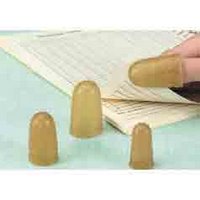The television has taken a more prominent place in my life these last EIGHT days I've been sick. Of course, we are a TV family. That is, our sectional couch and recliner are in a half-circle facing the tube. We spend $54 a month on cable (yet, still don't get HBO for that price; go figure). We organize some of our days around what's on the TV. Wednesday night: Top Chef or Project Runway. After-school unwinding for the boy: Malcolm in the Middle. Winter weekend nights: Gophers hockey. Sunday mornings: well, Sunday Morning.
My daughter's dormmates gather together for Prison Break on, what is it, Monday nights? My parents watch the local news before retiring to bed. My neighbors watch Sunday night Masterpiece Theatre; I see the blue glow of those period pieces through their picture windows on my late-night walks.
I don't keep the Sunday TV guide and we don't own TIVO so my life isn't that intertwined with the offerings of NBC, FOX, TNT, and AMC. But, damn, this week, the highlight of my days has been that moment I've cocooned in the old brown quilt inside our old green recliner, held the remote in my hand, and clicked on that little red button. What today? What's in store for today? Kristie Alley reveals her new body in a bikini. Oprah at 4. Joey buys one encyclopedia from the door-to-door salesman and masters the letter "M." Friends rerun at 6:30. American Idol travels to Seattle for Season 6 auditions. Wednesday at 7. I've taken my tea in that chair, eaten my hardscrabble sick-dinners in that chair, and reviewed my son's daily homework in that chair, with one eye flickering up to the screen between teacher comments.
Why, Tuesday night, when I couldn't sleep for this hacking cough, I turned on ESPN2 and saw the best college basketball game I've seen in a long time. Oklahoma State over Texas--last-second three-pointers, behind-the-back passes, and three overtimes! I was so thrilled for the entertainment I even considered staying on for the continuing coverage of the Austrialian Open.
I remember our family TV moments growing up. We lived in the Southwest so my mother kicked my brother and me out of the house to play most days. No excuse to stay indoors when it's 74 and sunny. My Chicago-born husband exclaims, "You mean you never watched Bozo? You don't even know who he is? That's just crazy." But she did let us watch The Captain Kangaroo show something like two days a week. By then we had a cocker spaniel, a cat, and my black rabbit, Midnight, so I loved Mr. Green Jeans. And my brother had one of those upright, old-fashioned dial telephones with the separate ear piece, just like the Captain.
I remember the day my mom thought my dad had been killed in the Saigon bombings during the Vietnam War. I still see the scene clearly: the base chaplain was at the open screen door, my mom was crying on the telephone, and Walter Cronkite was following up the Saigon footage with his own heartfelt commentary. (The bombs just missed my dad's barracks and he was able to call home to us later that night.)
I remember the day we put a man on the moon. We all got to watch the coverage after my dad got home from the air base flight lines. I can imagine now how thrilled he was to see progress from government and science rather than destruction. Then, after Dad tucked us in for the night in our bedrooms down the hall from the living room, I crept out in my flannel nightgown and crouched behind his recliner to catch more peeks of the screen. I'm sure he heard my shallow breathing but he never let on.
I remember watching the progressive All in the Family, and MASH, and Laugh-In, and learning a lot of my politics from those shows and our family talk about them during all the commercials. My mom would make those shows an event and prepare a big round tray of TV dinner--not the Swanson's kind, but her specialty crispy BLTs on white toast, or tomato soup in mugs with pickles and saltine crackers. She'd bring the big tray down to the basement family room and we'd sit cross-legged around the round Early American coffee table--all except my dad, who never could sit cross-legged.
So, looking at the Star Tribune headlines this morning, the ones berating the sex and violence on all our graphic TV series, and the summary of the dismal contestants on the American Idol Seattle episode, makes me a little defensive about our connection to TV. (I won't even burden you with the idiotic, overpaid commentator from the Center for the American Experiment whose right-wing columns are so poorly written I can't even laugh about them, the way I do about George Will or even William Safire.) I mean, I'm with her on the exploitation of humans on shows like CSI and Law and Order: SVU. And I disagree about the comedy in watching another set of fragile humans, those unattractive, untalented reality show contestants we seem to take pleasure in mocking. (Last night, after my husband and son and I watched some of the American Idol auditions, albeit laughing at some of the funnier scenes, I said, "But didn't our parents teach us not to make fun of vulnerable people?" "Yeah, you're right," said my son, "let's just change it.")

But give me a big bowl of Dorito Golds, a lap quilt, and a couple of hours of free or sick time, and I'll gladly give you my undivided attention, you producers of Divine Design, National Pie Festival, reruns of Gilmore Girls and Sex and the City, and modern-day laugh-ups like The Office and Studio 60. Order up the BLTs, honey. I've got a lot of catching up to do!
(My daughter and her friends catch a laugh!)



























